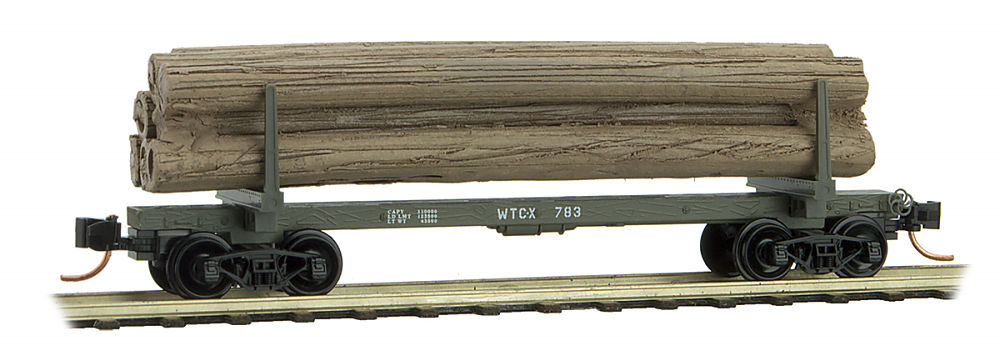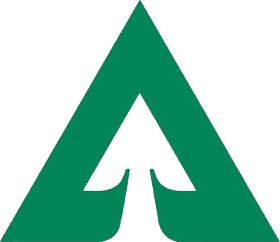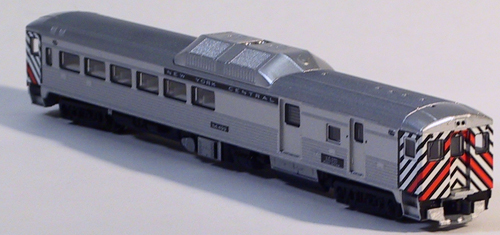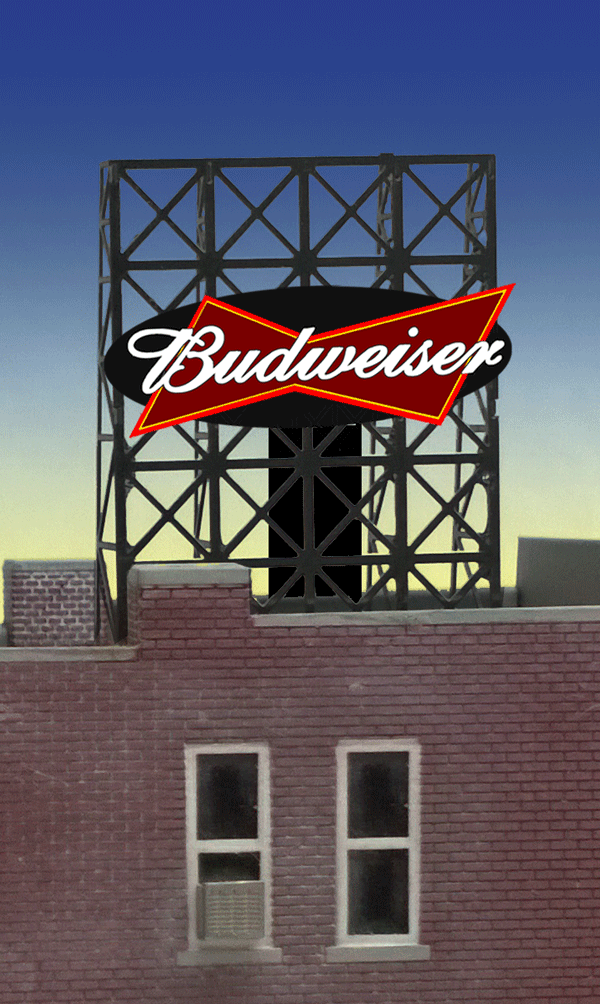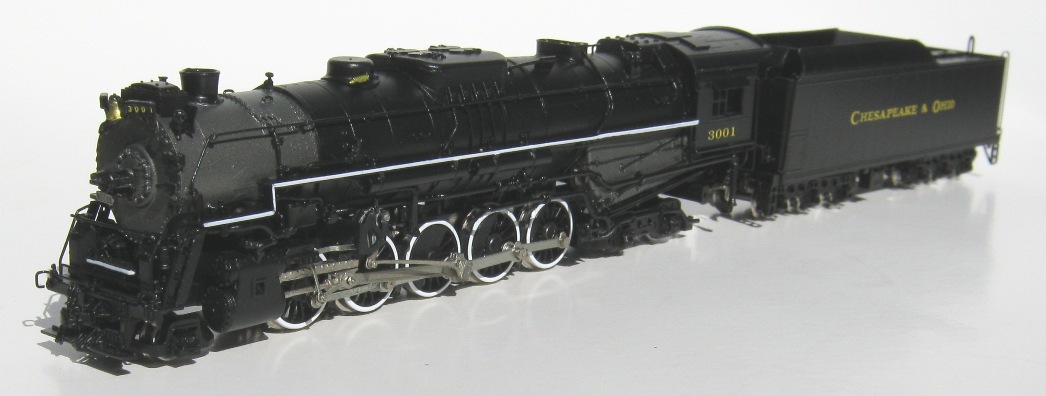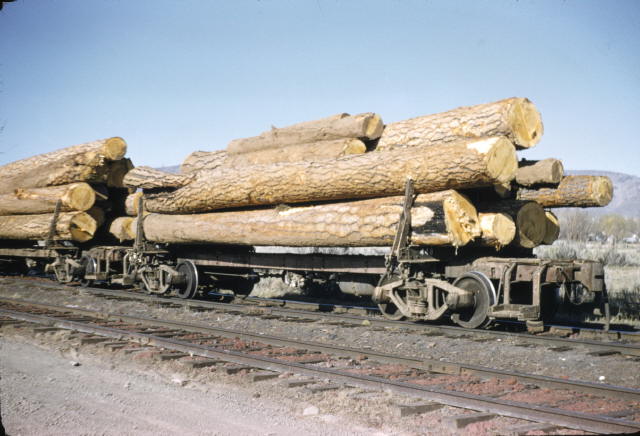Prototype History: The skeleton car has been a staple in the logging industry since the early part of the century and has appeared on nearly every logging road in the country. Such cars came in standard and narrow gauge versions and probably everything in between. Shay, Climax, and Heisler geared locomotives often pulled long strings of skeleton cars through the mountains and forests of California and the Pacific Northwest.
Road Name History: Weyerhaeuser (pronounced "Warehouser") Company, is one of the world's largest private owners of timberlands, owning or controlling nearly 12.4 million acres of timberlands in the U.S. and managing additional 14.0 million acres timberlands under long-term licenses in Canada. The company also manufactures wood products. Weyerhaeuser is a real estate investment trust.
In 1904, after years of successful Mississippi River-based lumber and mill operations with Frederick Denkmann and others, Frederick Weyerhaeuser moved west to fresh timber areas and founded the Weyerhaeuser Timber Company. Fifteen partners and 900,000 acres (3,600 km²) of Washington timberland were involved in the founding, and the land was purchased from James J. Hill of the Great Northern Railway. In 1929, the company built what was then the world's largest sawmill in Longview, Washington. Weyerhaeuser's pulp mill in Longview, which began production in 1931, sustained the company financially during the Great Depression. In 1959, the company eliminated the word "Timber" from its name to better reflect its operations. In 1965, Weyerhaeuser built its first bleached kraft pulp mill in Canada. Weyerhaeuser implemented its High Yield Forestry Plan in 1967 which drew upon 30 years of forestry research and field experience. It called for the planting of seedlings within one year of a harvest, soil fertilization, thinning, rehabilitation of brushlands, and, eventually, genetic improvement of trees.
In 1904, after years of successful Mississippi River-based lumber and mill operations with Frederick Denkmann and others, Frederick Weyerhaeuser moved west to fresh timber areas and founded the Weyerhaeuser Timber Company. Fifteen partners and 900,000 acres (3,600 km²) of Washington timberland were involved in the founding, and the land was purchased from James J. Hill of the Great Northern Railway. In 1929, the company built what was then the world's largest sawmill in Longview, Washington. Weyerhaeuser's pulp mill in Longview, which began production in 1931, sustained the company financially during the Great Depression. In 1959, the company eliminated the word "Timber" from its name to better reflect its operations. In 1965, Weyerhaeuser built its first bleached kraft pulp mill in Canada. Weyerhaeuser implemented its High Yield Forestry Plan in 1967 which drew upon 30 years of forestry research and field experience. It called for the planting of seedlings within one year of a harvest, soil fertilization, thinning, rehabilitation of brushlands, and, eventually, genetic improvement of trees.
Brand/Importer Information: Micro-Trains is the brand name used by both Kadee Quality Products and Micro-Trains Line. For a history of the relationship between the brand and the two companies, please consult our Micro-Trains Collector's Guide.
Manufacturer Information:  Micro-Trains Line split off from Kadee Quality Products in 1990. Kadee Quality Products originally got involved in N-Scale by producing a scaled-down version of their successful HO Magne-Matic knuckle coupler system. This coupler was superior to the ubiquitous 'Rapido' style coupler due to two primary factors: superior realistic appearance and the ability to automatically uncouple when stopped over a magnet embedded in a section of track. The success of these couplers in N-Scale quickly translated to the production of trucks, wheels and in 1972 a release of ready-to-run box cars.
Micro-Trains Line split off from Kadee Quality Products in 1990. Kadee Quality Products originally got involved in N-Scale by producing a scaled-down version of their successful HO Magne-Matic knuckle coupler system. This coupler was superior to the ubiquitous 'Rapido' style coupler due to two primary factors: superior realistic appearance and the ability to automatically uncouple when stopped over a magnet embedded in a section of track. The success of these couplers in N-Scale quickly translated to the production of trucks, wheels and in 1972 a release of ready-to-run box cars.
Micro-Trains Line Co. split off from Kadee in 1990 to form a completely independent company. For this reason, products from this company can appear with labels from both enterprises. Due to the nature of production idiosyncrasies and various random factors, the rolling stock from Micro-Trains can have all sorts of interesting variations in both their packaging as well as the products themselves. When acquiring an MTL product it is very important to understand these important production variations that can greatly enhance (or decrease) the value of your purchase.
Please consult our Micro-Trains Collector's Guide

Micro-Trains Line Co. split off from Kadee in 1990 to form a completely independent company. For this reason, products from this company can appear with labels from both enterprises. Due to the nature of production idiosyncrasies and various random factors, the rolling stock from Micro-Trains can have all sorts of interesting variations in both their packaging as well as the products themselves. When acquiring an MTL product it is very important to understand these important production variations that can greatly enhance (or decrease) the value of your purchase.
Please consult our Micro-Trains Collector's Guide
Item created by: gdm on 2018-01-31 14:43:10. Last edited by George on 2024-01-26 20:29:08
If you see errors or missing data in this entry, please feel free to log in and edit it. Anyone with a Gmail account can log in instantly.
If you see errors or missing data in this entry, please feel free to log in and edit it. Anyone with a Gmail account can log in instantly.


